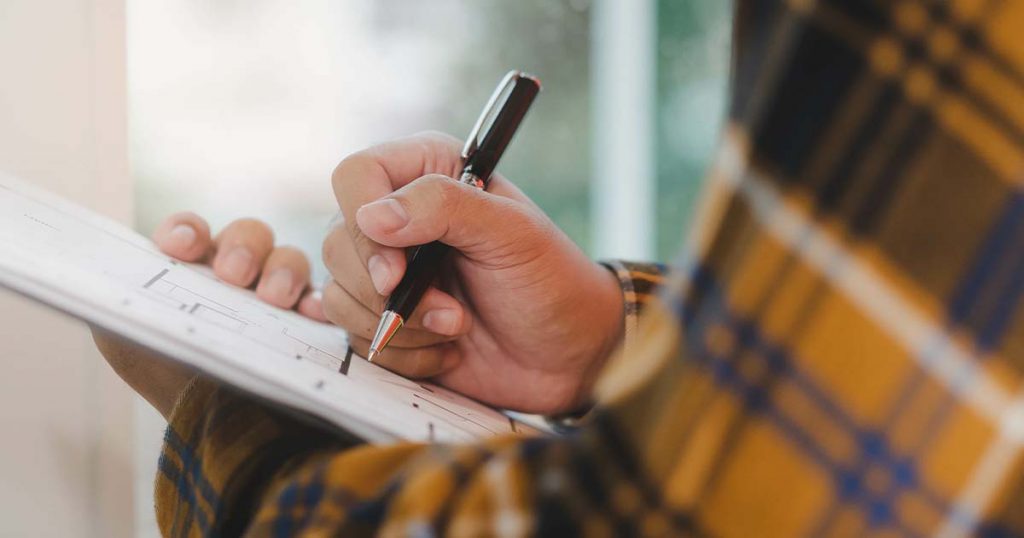
Buying your first home is really exciting. But with all the decisions to make, it can definitely feel overwhelming. One important step you should think about is getting a home inspection. But is it really necessary? This blog post will break down what a home inspection is and why it’s a big deal.
What are Home Inspections?

A home inspection is basically a detailed look at the condition of a property. It checks everything from the roof to the basement, examining all the major systems. The goal is to catch any problems before you buy. Home inspectors are trained to notice issues that you might overlook, and their insights can save you from some costly repairs down the line.
You might think skipping a home inspection is a smart way to save some cash, but it’s crucial to consider the short-term savings versus the potential long-term costs. A thorough inspection can uncover defects, helping you make an informed decision. After all, buying a home is probably the biggest investment you’ll ever make!
The Importance of Home Inspection
- Uncover Hidden Problems: A home inspection can uncover issues that may not be visible during a casual walkthrough, such as damage to the structure of the home or plumbing issues.
- Negotiate Repairs: If issues are found, you have the opportunity to negotiate repairs or price reductions with the seller, making it a powerful tool in your home-buying arsenal.
- Safety Assurance: Ensuring that the home meets safety standards can protect you and your family from future dangers.
- Peace of Mind: Knowing the true condition of the property gives you confidence in your purchase, reducing anxiety as you move forward.
- Future Planning: A detailed report can help you plan for future repairs and maintenance costs, allowing you to budget.
- Understanding Home Systems: Inspections often include insights into the lifespan and condition of major home systems (like HVAC, plumbing, and electrical), helping you anticipate future repairs.
Is a home inspection required?
While it’s not legally required, it’s definitely something you should consider. A home inspection gives you a clear view of the property’s condition, helping you spot any safety hazards or repairs needed before finalizing the deal. This info can be super helpful when negotiating the price.
For first-time home buyers, getting a home inspection brings peace of mind. It’s your chance to learn about how everything works in your potential new home. Knowing the state of the electrical system, plumbing, and heating can save you from unpleasant surprises after you move in.
If the inspector finds any issues, you’ve got options. You can negotiate with the seller to handle the repairs or adjust the price. Or you might decide to walk away if things don’t feel right. Either way, it’s better to know the facts upfront than to deal with unexpected challenges later on.
Waiving a Home Inspection

In a competitive market, some buyers think about waiving their home inspection contingency to make their offers stand out. But is that really a smart move? Let’s break down what it means to skip a home inspection and what it could lead to.
When you waive the inspection, you’re giving up the chance to have a pro check out the home. This can be pretty risky, especially if you’re not well-versed in building structures and systems. Without an inspection, you’re basically relying on the seller’s disclosure, which may not cover everything.
Two significant tests that may occur during a home inspection are radon testing and mold inspection:
Radon Testing: Radon is a naturally occurring, odorless gas that can seep into homes from the ground. It’s the second leading cause of lung cancer after smoking, making it a significant health risk. A home inspection usually does not include radon testing as part of the standard procedure. Conducting a radon test is straightforward and can be done with specialized detectors placed in the home for a few days. If elevated levels are found, mitigation systems can be installed to lower radon concentrations, protecting you and your family’s health.
Mold Inspection: Mold can pose serious health risks, particularly for individuals with allergies or respiratory issues. Mold thrives in damp areas and can quickly proliferate if not identified and addressed. While inspectors often look for obvious signs of mold during a visual inspection, they may not perform comprehensive mold testing without specific request. An independent mold inspection can be beneficial, especially if there are indicators of water damage or if the home has been vacant for a while. This inspection can identify hidden mold growth that isn’t easily visible, providing peace of mind that your new home is safe.
Ultimately, skipping specialized tests like radon and mold could lead to unexpected and potentially costly issues down the line. It’s wise to discuss these options with your home inspector to ensure you’re making an informed decision regarding your new home. Taking proactive steps will help safeguard your investment and the well-being of those who will live there.
While skipping the inspection might speed up the buying process, but it also leaves you open to unexpected issues. Without an expert’s take on the property’s condition, you could end up with some pretty hefty repair bills after you move in. It’s super important to weigh these risks before making your decision!
Reasons People Waive a Home Inspection
In a competitive market, sellers might prefer offers with fewer conditions. By waiving inspection, buyers show they’re serious and willing to take risks to secure the home.
Another reason is time pressure. Buyers may want to close quickly due to personal circumstances or market conditions. Waiving the inspection speeds up the process, allowing for a faster transaction. But remember, this can backfire if unexpected issues arise later.
Finally, some buyers feel confident enough to assess the home’s condition themselves. They might have experience in construction or real estate, making them comfortable with the decision. However, even seasoned professionals can overlook hidden problems without a formal inspection.
Risks from Waiving a Home Inspection
Waiving a home inspection isn’t without risks. It can lead to unexpected costs if major problems are discovered after purchase. Repairing structural damage, plumbing issues, or electrical faults can quickly add up, straining your budget.
There’s also the possibility of safety concerns. Undetected issues like mold, faulty wiring, or gas leaks can pose health risks. These problems might not be visible to the untrained eye, making a professional inspection vital for your safety.
Lastly, waiving an inspection can impact your home’s resale value. When it comes time to sell, potential buyers may request an inspection. If significant issues are found, it could lower your property’s value or derail the sale.
Should You Waive a Home Inspection
Is waiving a home inspection worth the risk? For most first-time buyers, the answer is no. The peace of mind offered by a home inspection outweighs the potential short-term benefits.
Consider your own risk tolerance—Are you prepared to handle unexpected repairs? Do you have the budget for potential renovations? Answering these questions can help you decide if waiving an inspection is the right choice for you.
Remember, a home inspection is about making an informed decision. It’s about protecting your investment and ensuring your new home is safe and livable. While it might seem tempting to skip this step, the risks often outweigh the rewards. Taking the time for a proper inspection can save you money, stress, and headaches in the long run.
Questions to Ask Yourself Before You Waive a Home Inspection
Before you decide to waive a home inspection, it’s essential to ask yourself a few important questions. These will help you assess the risks and make an informed choice.
- What is my level of knowledge about home maintenance?
Consider how much you know now about home repairs and DIY. If you lack experience, it might be wise to go forward with inspection.
- How competitive is the current market?
Evaluate the market conditions in your area. Is it highly competitive, or do you have room to negotiate? If you waive your inspection to make an offer, you may be dealing with unforeseen home issues.
- Do I trust the seller’s disclosures?
Take a close look at the seller’s disclosures. Do they seem transparent and thorough? If you have doubts about the accuracy or completeness, an inspection can provide peace of mind.
- What is my budget for future repairs?
Consider your financial readiness for possible surprise expenses. Would you be comfortable managing major repairs if they arise shortly after moving in?
- Are there recent renovations or repairs documented?
If the home has had recent work done, investigate the quality and legitimacy of those repairs. Were they completed by certified professionals? An inspection can give you clarity on the integrity of these renovations.
- How long do I plan to stay in this home?
If you’re planning to stay in the home for a long time, the risks associated with skipping an inspection might not align with your long-term goals. It may be wise to invest in an inspection for reassurance.
From Inspection to Moving with CubeSmart

While waiving a home inspection might seem appealing in a hot market, it’s generally not recommended, especially if you’re a first-time buyer. The potential risks and hidden costs can lead to repairs, issues, and financial strain that may not be in your budget.
Whatever your decision, we’re here to help ease the stress of your home buying journey. Whether you need more space while moving into your new home, or a place to keep extra things while you look. CubeSmart has over 1500 locations across the US with many different storage unit sizes. Check out our facilities and our size guide for more information on your options.









